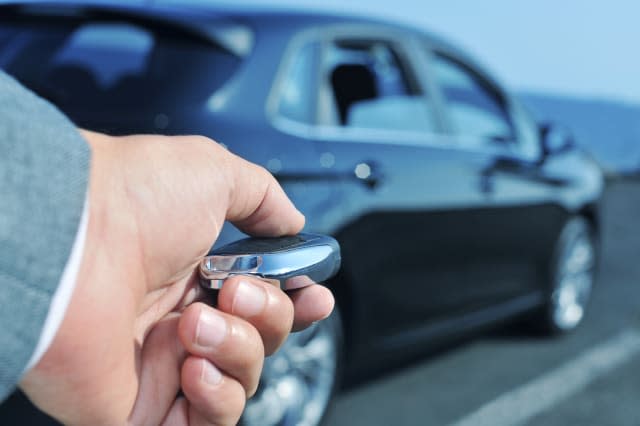Tax blow for half a million company car drivers

The Treasury is set to delivery a nasty blow to half a million company car drivers. They are planning to remove a loophole, which helped people cut their tax bill when they got a car through work. It could cost drivers thousands of pounds.
The loophole in question is known as salary sacrifice. The idea is that you give up some of your salary in return for a particular perk. Companies do this with perks that are tax-efficient, so instead of paying national insurance and a higher rate of tax on that portion of your salary, you pay a lower tax rate on the perk.
The issue for the Treasury is that these schemes are just too popular - they increased by a third in the past five years - and this means the government is missing out on too much tax revenue as a result.
What's happening?
The former Chancellor George Osborne raised the issue of killing off salary sacrifice altogether, which caused a huge outcry. The issue with dropping them altogether is that you lower take-up of the kinds of things that the government is keen to encourage - including pension savings, tax-efficient childcare vouchers and bike to work schemes.
What it is considering now is a more targeted cull in April next year, which would hit a variety of other benefits. It includes gym membership, mobile phones, computers and even white goods - but most of all it will hit company cars.
The most beneficial salary sacrifice schemes were on very low carbon emission cars - which currently are highly tax efficient to run because the government has reduced the tax charge in order to encourage people to drive greener cars.
What will it cost you?
Consultancy firm Deloitte has crunched the numbers. It says that if an employee with a cash allowance of £7,520 chooses a low C02 BMW 330e, this car will have a tax value of £3,060 – because of its low emissions. It means that rather than having to pay 40% income tax on £7,520, a higher rate taxpayer would have to pay 40% tax on £3,060 - saving £1,784. The employer pays National Insurance of 13.8% on the taxable value of the car, rather than the salary sacrificed, so the employer saves money too.
It's bad enough that this will hit around 100,000 company cars on salary sacrifice schemes, but there's a serious risk it will also hit anyone whose company offers the choice between cash or a company car. This would mean more than half a million drivers are stung with a bigger tax bill.
What can you do?
We will have to wait to see whether this comes to fruition, and whether employers alter their policies or employees are stuck paying more tax.
Before any company car owner worries too much about the additional tax they'll be forced to pay, it's worth pointing out that companies have a long track record of changing their offerings to stay just the right side of the tax man. Let's not forget that company cars only really took off in this country because they were a good way to get around the very high income taxes of the 1970s.
In the interim, it's a useful reminder of the benefits of salary sacrifice schemes, and just how much money you can save. It's well worth taking the opportunity to look at what's on offer from your employer while it's still around for you to take advantage of.
If your employer offers pensions or childcare vouchers through salary sacrifice, these aren't under threat, but are well worth looking into too. Your employer should offer you a calculator to work out how much money you can save by taking advantage, and plenty of people are saving more than £1,000 a year through these schemes.
























